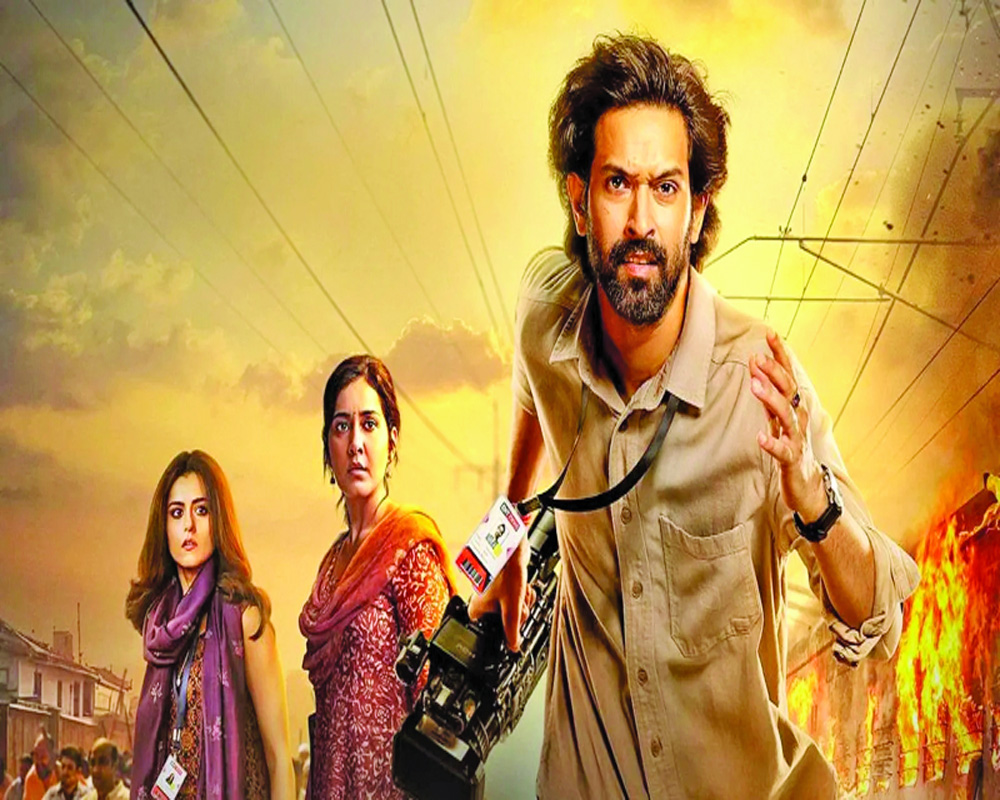The film unveils the influence of political clout and journalistic integrity in the wake of a historical tragedy, says Abhi Singhal
Directed initially by Ranjan Chandel and later helmed by Dheeraj Sarna, The Sabarmati Report intricately explores the interplay of political dominance and media influence against the backdrop of one of India’s most contentious events—the Godhra train burning incident of February 27, 2002. This film, inspired by real-life events surrounding the Sabarmati Express tragedy, delivers a compelling narrative steeped in investigative journalism, political dynamics, and the moral dilemmas of media reporting.
The movie begins with an electrifying depiction of the bustling newsroom environment, immediately pulling viewers into the heart of the journalistic world. The talented cast, led by Vikrant Massey as Samar Kumar, Raashii Khanna as Amrita Gill, and Riddhi Dogra as Manika Rajpurohit, along with Barkha Singh’s impactful cameo as Shloka, infuses life into the gripping storyline.
The plot meticulously recreates the harrowing events of the Godhra train incident, where 59 individuals, predominantly Hindu pilgrims and karsevaks returning from Ayodhya, tragically perished in a devastating fire. With a meticulous portrayal of the horrific aftermath, the movie confronts viewers with the sheer magnitude of the tragedy while shedding light on the media’s struggle to strike a balance between truth and sensationalism.
Riddhi Dogra’s portrayal of Manika Rajpurohit, an English news anchor with an air of arrogance and confidence in her abilities, adds depth to the media-focused narrative. The first half captivates audiences with its vivid storytelling and intricate character development. However, it is post-intermission where the film takes a gripping turn, delving into the core of the investigative efforts to uncover the truth behind the train-burning case.
Vikrant Massey delivers a masterful performance as Samar Kumar, transitioning from an idealistic journalist to a relentless investigator with remarkable ease. His character’s transformation is riveting, offering a nuanced look at the challenges faced by those who dare to question authority. Raashii Khanna shines as Amrita Gill, a determined intern navigating the salted waters of media politics. Her journey alongside Samar not only drives the narrative forward but also marks a significant milestone in her acting career.
While the film boasts strong performances and a compelling storyline, it does falter slightly in its attempt to inject humour into serious moments, which at times feels forced and disrupts the intensity. The background score, however, compensates by effectively amplifying the gravity of each investigative sequence, adding a layer of immersion for the audience.
The Sabarmati Report follows in the footsteps of recent titles like The Kashmir Files and The Kerala Story of having hits and more profits. The film has a crafting a fiery and provocative narrative designed to resonate with viewers on an emotional level. However, it stands apart by striving to present a nuanced perspective on media ethics, to take out the truth and the complex interplay of truth and political agendas.
With good performances which could have been improved while playing the characters, a thought-provoking storyline, and a reflection on the moral quandaries of journalism, The Sabarmati Report is a cinematic endeavour that not only entertains but also compels viewers to question the very fabric of truth and power in today’s world.
Rating: 4/5


























